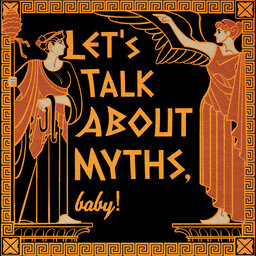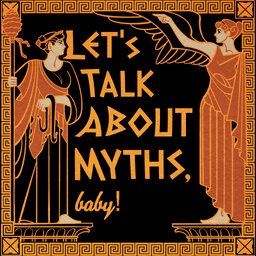Liv Reads Ancient Spooky: Speeches from Seneca's Thyestes and Agamemnon
Liv reads speeches from Seneca's Thyestes and Agamemnon, translated by Frank Justus Miller. Ask your questions for the next Q&A episode here!
This is not a standard narrative story episode, it's a reading of an ancient source, audiobook style. For regular episodes look for any that don't have "Liv Reads..." in the title! For a list of Roman/Latin names and who they were in the Greek, visit: mythsbaby.com/names
Attributions and licensing information for music used in the podcast can be found here: mythsbaby.com/sources-attributions.
Let's Talk About Myths, Baby! Greek & Roman Mythology Retold
The most entertaining and enraging stories from Greek mythology and the wider Ancient Mediterranean …Social links
Follow podcast
Recent clips

AHFG Book Club: Jenny Williamson's Enemy of My Dreams
1:16:02

RE-AIR: Conversations: A Long and Storied History of Sparta, Modern Misuse & Misconception w/ Stephen Hodkinson
1:40:25

Hermes Historia: Giorgos the Oikist, Colonization in Greek Antiquity
42:43
 Let's Talk About Myths, Baby! Greek & Roman Mythology Retold
Let's Talk About Myths, Baby! Greek & Roman Mythology Retold